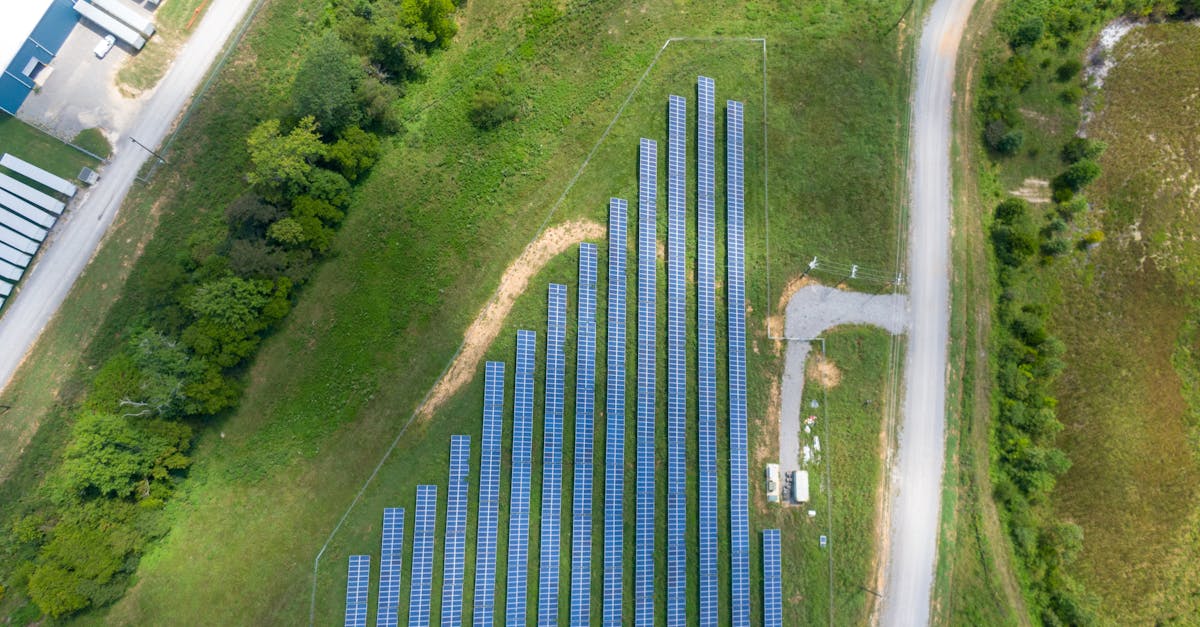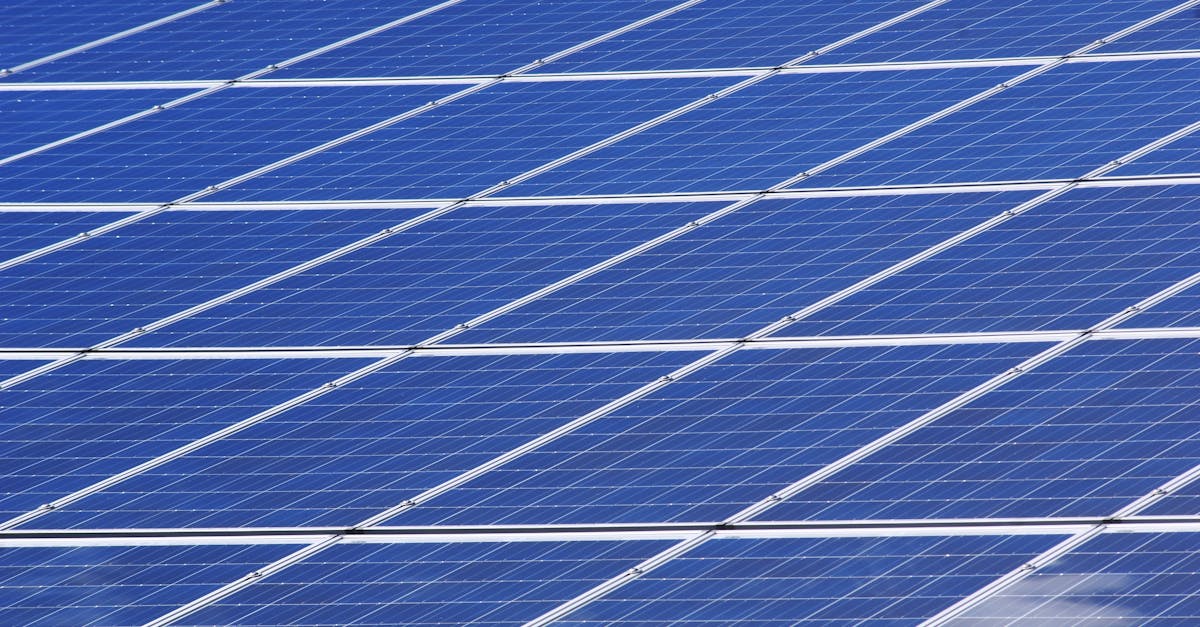Illuminating the Radiance of Solar Sustainability: Pioneering a Greener Tomorrow

As our world grapples with the urgency of addressing climate change and environmental degradation, the pivotal role of solar panels in fostering a sustainable future becomes increasingly evident. In this comprehensive analysis, we delve into the deep-rooted environmental benefits of solar panels, providing a compelling exploration of their impact on our planet. From mitigating carbon emissions to preserving biodiversity and fostering sustainable development, solar panels stand as beacons of hope, driving us towards a greener, cleaner tomorrow. Join us on this illuminating journey as we uncover the multifaceted advantages that solar panels offer, steering us towards a more sustainable and eco-friendly world.
1. Understanding Solar Panels and Sustainability
Thank you for reading this post, don't forget to subscribe!
In the quest for a sustainable future, solar panels stand as a beacon of promise, offering a crucial link to environmental sustainability. These panels symbolize a revolution, demonstrating the sheer power of renewable energy sources in reducing our reliance on fossil fuels. Harnessing sunlight, they embody efficiency and innovation, promising a cleaner and greener energy landscape. The adoption of solar panels is making notable strides in reducing our carbon footprint, contributing significantly to the fight against climate change. The very essence of their existence is rooted in the spirit of sustainability, aligning with our global quest for ecological balance and responsibility.
Moreover, the expansion of solar energy deployment is not merely a shift in energy sources; it’s a fundamental transformation in our approach to environmental stewardship. Solar panels actively aid in mitigating air pollution, paving the way for improved air quality that supports healthier communities. Their role in preserving water resources further underscores their positive impact. By showcasing the pivotal link between solar panels and sustainability, this journey of exploration aims to highlight the promise and potential for a brighter, more environmentally sustainable future, promising a legacy of reduced environmental impact and enhanced ecological harmony.
Renewable Energy Sources
The ascendancy of solar panels as a sustainable source of renewable energy signals a monumental shift in our energy landscape. Embracing the inexhaustible power of the sun, these panels stand as a testament to human ingenuity, offering a beacon of hope in our quest for sustainable energy solutions. Fueled by this abundant energy source, solar panels serve as potent allies in reducing our dependency on fossil fuels, ushering in an era of greater energy independence and environmental responsibility. Their deployment not only signifies a departure from traditional, environmentally taxing energy sources but also paves the way for a cleaner, greener tomorrow, promising a future less reliant on finite resources.
With solar panels emerging as a prominent player in the renewable energy sector, the narrative of our energy future takes on an encouraging hue. As we highlight the use of solar panels as a sustainable source of renewable energy, it becomes increasingly clear that we are witnessing a transformative paradigm shift. Through this emphasis on reducing our reliance on fossil fuels, solar panels offer tangible, environmentally responsible solutions, underscoring our capacity for innovation and sustainable progress. By showcasing their prowess as a viable alternative, this article aims to encourage the widespread adoption and appreciation of solar panels as sustainable, renewable energy champions.
Carbon Footprint Reduction
The remarkable impact of solar panels in reducing carbon emissions and combatting climate change resonates with the global quest for a cleaner, more sustainable planet. Through their deployment, solar panels offer a compelling narrative of hope, showcasing tangible initiatives that significantly mitigate our carbon footprint. By harnessing the sun’s boundless energy, these panels present a transformative pathway, heralding a future marked by reduced greenhouse gas emissions and environmental restoration. Their pivotal role in promoting a cleaner and greener planet is underscored by the tangible steps they facilitate toward environmental stewardship and global sustainability.
Solar panels emerge as catalysts for change, presenting real solutions to combat climate change and usher in a new era of environmental conscientiousness. Their ability to reduce carbon emissions marks a significant milestone, paving the way for a brighter, more sustainable future. By detailing the profound impact of solar panels in reducing carbon footprints, this article seeks to inspire others to embrace renewable energy solutions, emphasizing the tangible difference these panels make in creating a healthier, more balanced ecosystem. The widespread acceptance and deployment of solar panels as drivers of carbon footprint reduction will undoubtedly contribute to a substantive global shift toward sustainable energy practices and environmental conservation.
2. Evaluating the Impact on Air and Water Quality

The deployment of solar energy presents a compelling narrative of promise and positivity, particularly evident in its pronounced impact on air and water quality. Solar energy’s rise as a dominant contributor to cleaner air and water stands as a testament to the transformative nature of renewable energy solutions. Through its deployment, solar energy actively curtails air pollution, ushering in an era of clearer skies and healthier communities. Furthermore, the positive effects on water quality are equally noteworthy, with solar energy’s eco-friendly footprint promising the conservation and protection of vital water resources. This thoughtful evaluation holds testament to the immense potential of solar energy in fostering a healthier, more sustainable environment.
As we assess the profound impact of solar energy deployment on air and water quality, we are met with hope and tangible evidence of environmental improvement. This journey of evaluation reinforces the crucial role solar energy plays in cultivating cleaner, healthier surroundings for both human and ecological well-being. Emphasizing the positive effects of solar energy on air and water quality encourages a collective appreciation for renewable energy’s ability to restore and preserve natural resources, fostering a legacy of environmental responsibility and stewardship.
Air Pollution Mitigation
The role of solar panels in mitigating air pollution and enhancing air quality stands as a beacon of hope in our collective efforts toward a healthier, greener world. By delving into the transformative impact of solar panels, it becomes increasingly evident that these renewable energy solutions are pivotal players in curbing environmental pollutants. Solar panels actively contribute to the reduction of harmful emissions, presenting tangible solutions for cleaner, purer air. Their widespread adoption offers a promising narrative, showcasing the potential for a healthier environment and more vibrant ecosystems, fostering a collective sense of optimism and responsibility in addressing air pollution.
Examining how solar panels aid in reducing air pollution offers a compelling narrative, emphasizing the tangible benefits these systems provide to communities and environments worldwide. The encouraging evidence of their positive impact on air quality not only demonstrates their environmental significance but also underscores their crucial role in fostering human well-being. Through emphasizing the link between solar panels and air pollution mitigation, this exploration seeks to inspire widespread recognition and adoption of solar energy as a powerful, transformative force in creating healthier, more sustainable living environments. The collective steps taken toward integrating solar energy into our daily lives stand as a testament to our dedication toward combatting air pollution and nurturing a world marked by cleaner, purer air for generations to come.
Water Conservation Benefits
The impact of solar energy on water conservation presents a compelling narrative of environmental responsibility and sustainable progress. Solar energy’s water-saving properties play a vital role in ushering in a future marked by mindful resource management and preservation. By detailing the remarkable water conservation benefits of solar energy, we underscore its positive impact on water resources and environmental preservation efforts. The thoughtful integration of solar energy not only presents viable solutions for energy generation but also showcases its inherent compatibility with sustainable water conservation practices, offering a harmonious and encouraging vision for the future.
Detailing the water-saving properties of solar energy promotes an inspiring vision of coexistence between renewable energy solutions and responsible water utilization. This exploration aims to emphasize the direct benefits of solar energy on water conservation, highlighting its capacity to minimize water usage and its potential to positively transform our approach toward natural resource stewardship. By delving into the impact of solar energy on water resources and conservation efforts, we catalyze a deeper understanding of the inherent synergy between renewable energy initiatives and ecological balance, inspiring a collective commitment to sustainable, mindful resource utilization. This journey of exploration fosters a sense of optimism and empowerment, reinforcing the significance of solar energy amidst our collective pursuit of environmental harmony and responsible resource management.
3. Preservation of Ecosystems and Biodiversity
The pivotal role of solar panels in preserving ecosystems and maintaining biodiversity stands as a testament to their profound impact on environmental conservation. Offering a beacon of hope and promise, solar panels present a harmonious narrative that demonstrates their inherent compatibility with the preservation of ecological balance and biological diversity. By highlighting the positive influence of solar panels in ecosystem preservation, we underscore their ability to minimize habitat disruption and conserve natural habitats for diverse wildlife and plant species. This thoughtful exploration aims to showcase the significant role solar panels play in fostering a more balanced, biodiverse world, inspiring a deeper sense of ecological responsibility and stewardship.
Solar panels emerge as champions of biodiversity enhancement, promoting a resilient environment that supports the flourishing of diverse species and ecosystems. Their role in preserving ecosystems and maintaining biodiversity offers an encouraging narrative that underscores the potential for coexistence between renewable energy solutions and ecological harmony. Through emphasizing the vital link between solar panels and the preservation of ecosystems, this article seeks to inspire a collective commitment to sustainable energy practices and environmental conservation, fostering a legacy of ecological balance and biodiversity preservation. This insightful journey serves as a reminder of the symbiotic relationship between solar energy and the natural world, presenting a hopeful vision of coexistence and environmental responsibility.
Habitat Protection
The integration of solar energy plays a crucial role in the protection of habitats, serving as a cornerstone in our collective efforts to conserve natural ecosystems for wildlife and plant species. Solar energy’s capacity to minimize habitat disruption and preserve natural habitats highlights its pivotal role as a champion of environmental conservation and ecological balance. By discussing how solar energy mitigates habitat disruption, we underscore its profound impact on protecting the vital ecosystems that foster biodiversity and sustain diverse life forms. This thoughtful exploration endeavors to emphasize the positive influence of solar energy on preserving natural habitats, inspiring a collective dedication to fostering a balance between renewable energy solutions and the preservation of critical ecological environments.
Solar energy provides a beacon of hope for the conservation of natural habitats, presenting viable solutions that harmonize with the protection of vital ecosystems. By underscoring the positive impact of solar energy on habitat protection, we celebrate its potential to foster a more sustainable, interconnected world that supports thriving wildlife and diverse plant species. This discussion serves as a testament to the shared vision of balancing energy needs with the preservation of Earth’s rich ecological tapestry, highlighting the promising narrative of coexistence between sustainable energy practices and responsible environmental stewardship.
Biodiversity Enhancement
Solar energy stands as a powerful ally in the preservation of biodiversity, presenting tangible solutions that protect and nurture endangered species and diverse ecosystems. Through an exploration of the positive impact of solar energy on biodiversity, we celebrate its role as a guardian of Earth’s rich tapestry of life. Solar energy’s capacity to preserve biodiversity offers a compelling narrative, showcasing its ability to safeguard fragile ecosystems and mitigate threats to endangered species. By recognizing the essential link between solar energy and biodiversity enhancement, we paint a vivid picture of hope and promise, inspiring collective action toward fostering a world that supports the flourishing of life in all its forms.
As we delve into the positive impact of solar energy on preserving biodiversity, we witness the harmonious coexistence of renewable energy solutions and the protection of Earth’s diverse species. By exploring the ways in which solar energy contributes to protecting endangered species, this discussion empowers a global community, encouraging a shared commitment to nurturing a thriving, biodiverse planet. Solar energy’s role in enhancing biodiversity offers a beacon of hope, fostering a legacy of responsible environmental stewardship and a harmonious coexistence between human progress and the preservation of Earth’s precious natural heritage.
4. Waste Reduction and Sustainable Development

Solar panels play a vital role in waste reduction and the advancement of sustainable development models, laying the groundwork for a future marked by responsible resource management and environmental conscientiousness. By emphasizing the pivotal role of solar panels in waste reduction, we underscore their capacity to minimize electronic waste through sustainable end-of-life management. This forward-thinking approach not only aligns with our commitment to reducing waste but also fosters a culture of sustainable, responsible energy consumption. As we explore the influence of solar panels in fostering sustainable development models, we celebrate their transformative influence, inspiring a collective vision of progress marked by mindful resource utilization and waste reduction.
Solar panels emerge as beacons of progress, offering tangible solutions in advancing sustainable development models that promote responsible energy consumption and waste management. Through their emphasis on waste reduction and sustainable development, solar panels showcase a promising narrative, nurturing a world that balances human innovation with environmental harmony. This exploration aims to inspire a deeper understanding of the intrinsic link between solar panels and sustainable development, fostering a collective vision of progressive, responsible resource management that champions a legacy of waste reduction and sustainable progress.
E-waste Minimization
The integration of solar panels presents a promising avenue for minimizing e-waste, signaling a transformative shift toward responsible electronic waste management. Solar panel installation, accompanied by sustainable end-of-life management, offers a compelling narrative of progress in reducing electronic waste. This thoughtful approach not only champions the reduction of e-waste but also underscores the role of renewable energy in fostering responsible resource utilization. As we delve into the reduction of electronic waste through solar panel installation, we celebrate a vision of progress that underscores the seamless integration of renewable energy solutions and e-waste minimization.
Exploring the reduction of electronic waste through solar panel installation provides an uplifting narrative, showcasing the transformative impact of sustainable energy practices on electronic waste management. By emphasizing the pivotal link between solar panels and e-waste minimization, this exploration inspires a collective commitment to integrating renewable energy solutions in our pursuit of responsible waste management. The positive influence of solar panel installation and sustainable end-of-life management is a testament to the potential for a harmonious coexistence between human progress and environmental responsibility, fostering a legacy of e-waste reduction and sustainable resource utilization at a global scale.
Local Economic and Social Benefits
Solar panel deployment offers a wealth of local economic and social benefits, fostering sustainable growth and community development. Beyond its environmental advantages, solar energy serves as a catalyst for economic prosperity, generating job opportunities, and stimulating local economies. The presence of solar panels drives innovation, facilitating the creation of skilled jobs in installation, maintenance, and associated industries, thereby boosting economic activity within communities. Moreover, the integration of solar panels supports sustainable growth, reducing energy costs for households and businesses, channeling savings back into local economies. These panels stand as symbols of progress, promoting a vibrant and resilient economic landscape while nurturing a sense of environmental responsibility. By detailing the social and economic advantages of solar panel deployment, this exploration underscores the transformative influence of renewable energy on community development. Solar energy empowers communities, encouraging energy independence and self-sufficiency, thus fostering a sense of collective empowerment and resilience. As communities embrace solar energy, they lay the groundwork for sustainable progress, realizing a vision of localized energy production and consumption. This pursuit not only promotes environmental responsibility but also strengthens community bonds, inspiring a shared commitment to sustainable growth and prosperity. The uplifting impact of solar panel deployment extends beyond economic gains, presenting a harmonious narrative of community development and environmental stewardship. By emphasizing the multidimensional benefits of solar energy, this discussion inspires a vision of self-reliant, environmentally conscious communities, driven by a shared commitment to social and economic progress propelled by responsible energy practices and sustainable growth.
5. The Future of Solar Panels and Environmental Sustainability
The future of solar panels unfolds as a beacon of promise in advancing environmental sustainability, marking a significant chapter in our pursuit of a cleaner, greener world. As we envision the future landscape of solar panels, a compelling narrative of progress emerges. Technological advancements continue to enhance the efficiency and affordability of solar energy, heralding a future marked by widespread adoption and integration. This trajectory not only promises a substantial reduction in carbon emissions but also fosters energy independence, empowering communities and nations alike. Envisioning the future role of solar panels underscores their pivotal significance in shaping a more sustainable, eco-friendly world. As innovation continues to drive the evolution of solar technology, we anticipate a future marked by greater energy accessibility and reduced environmental impact. The proliferation of solar energy not only promises to mitigate climate change but also presents opportunities for economic growth, job creation, and infrastructure development. The vision of a future replete with solar panels as primary energy sources inspires a world characterized by environmental conscientiousness, energy equity, and sustainable progress. This exploration not only celebrates the inherent potential of solar panels but also serves as a testament to our collective dedication to environmental sustainability. By envisioning the future landscape of solar panels, we embrace a shared commitment to a world powered by clean, renewable energy, fostering a legacy of environmental responsibility and the promise of a sustainable, thriving planet.
Technological Innovations
As we delve into the realm of technological innovations in solar panel technology, a narrative of boundless potential and enduring promise unfurls. Over time, cutting-edge advancements have revolutionized solar energy, rendering it more efficient, affordable, and adaptable. Innovations such as perovskite solar cells, bifacial panels, and advanced energy storage solutions present a vibrant future for solar energy, promising greater accessibility and energy yield. These innovations not only bolster the viability of solar energy but also elevate its capacity to transform our planet’s energy landscape, paving the way for a future marked by sustainable, eco-friendly progress. The profound impact of these advancements extends beyond efficiency gains, offering a promising narrative of environmental preservation and energy independence. Technological breakthroughs in solar panel design and energy storage expand the horizons of renewable energy, offering sustainable solutions for diverse environmental and energy challenges. Moreover, the evolution of solar technology aligns with our collective commitment to reducing carbon emissions, fostering a cleaner, greener world, and advancing environmental preservation. This exploration underscores the invaluable role of technological innovations in shaping the future of solar energy, inspiring a shared vision of progress and transformation. By discussing cutting-edge advancements in solar panel technology, we celebrate the promising trajectory of renewable energy, driven by a commitment to innovation, sustainability, and a profound sense of responsibility toward environmental preservation and progress.
Global Adoption and Policy Frameworks
The global adoption of solar energy represents a monumental stride towards a sustainable future, embodying a collective commitment to environmental stewardship and renewable energy solutions. Across the world, nations are increasingly embracing solar energy, recognizing its potential to mitigate climate change, reduce carbon emissions, and foster energy independence. The widespread adoption of solar energy signifies a global shift towards sustainable, eco-friendly practices, promising transformative outcomes for our planet and future generations. This global adoption underscores the indispensable need for supportive policy frameworks that incentivize and streamline the integration of solar energy into national energy landscapes. The development of robust policy frameworks catalyzes the transition to renewable energy, laying the groundwork for sustainable progress and environmental conservation. Forward-looking policies that encourage renewable energy adoption, expedite permitting processes, and offer financial incentives not only accelerate the proliferation of solar energy but also create a conducive environment for technological innovation and economic growth. Furthermore, the examination of global adoption and policy frameworks offers an uplifting narrative, inspiring nations to foster a unified vision of progress marked by environmental responsibility and sustainable energy practices. By discussing the global momentum towards solar energy and the imperative need for supportive policies, this exploration celebrates a shared commitment to a renewable energy future, encouraging a legacy of environmental preservation and progress.
Environmental Benefits of Solar Panels Quiz
- What are some environmental benefits of solar panels?
- a) Improved air quality
- b) Reduced carbon emissions
- c) Habitat protection
- d) All of the above
- What is a key advantage of solar panel deployment in communities?
- a) Increases water consumption
- b) Reduces energy costs
- c) Contributes to air pollution
- d) None of the above
- How do solar panels contribute to waste reduction?
- a) They generate more waste
- b) They do not impact waste reduction
- c) They minimize electronic waste
- d) All of the above
- What role do policy frameworks play in the global adoption of solar energy?
- a) They hinder the transition to renewable energy
- b) They accelerate the proliferation of solar energy
- c) They do not have any impact
- d) None of the above
- d
- b
- c
- b




